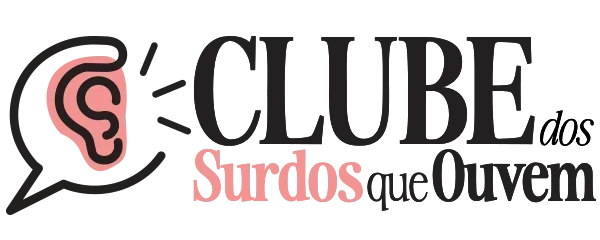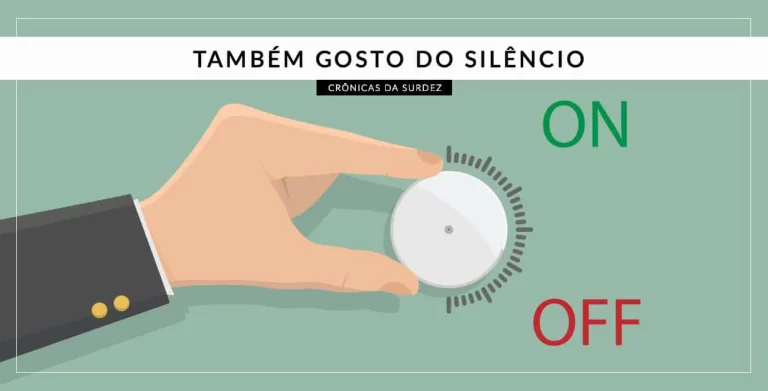Auditory training…and a little help with music, please!!!
In October, I was in São Paulo. I had the opportunity to do some auditory training sessions with speech therapist Mariana Guedes. I’d never done this before and I went to the office feeling very negative. I said hello to Mariana, saying“I bet I won’t hear anything, but let’s try“.
I don’t know about you, but I have a ‘slight’ trauma from that soundproof booth. It’s probably because every time I’ve had an audiometry I’ve found that my condition has got a bit worse, which means that being locked in there is a guarantee of bad news for me. Mariana, who was super pregnant at the time (by the way, have you had a baby yet Mari??), tried to put me down in every way. And I was skeptical. 100% skeptical.
Auditory training is extremely important for hearing aid users. In my case, even more so, because as I didn’t use it for many years, I didn’t have any sound stimuli. It’s the famous“I hear, but I don’t understand“. The brain doesn’t decode the sound information that reaches it. To put it another way, it’s as if everything you hear (without lip-reading along to understand) is spoken in Chinese.
What does it do? It forces your brain to understand what you can hear. When you have hearing loss, there is a quantitative lack (the quantity of sound decreases) and a qualitative lack (the quality of sound becomes poor). The hearing aid is a sound amplifier that returns the quantity of sounds, with higher or lower quality depending on the device’s features. However, the device doesn’t return the comprehension of words, but rather the amount of sound. The importance of auditory training lies in improving the comprehension of words.
The training is based on therapy sessions (training) for the brain to relearn the auditory skills (auditory attention, auditory localization, memory, discrimination, etc.) lost as a result of hearing loss. The auditory training program can vary in the number of sessions depending on each case, ranging from 6 to 10 sessions, or more if necessary. The patient undergoes an assessment before the training and afterwards, to see if the trained skills have improved.
I’ve only had two sessions and I thought it was very nice. It’s a bit of a headache, because you have to pay a lot of attention and really push yourself. But it’s so rewarding to understand some things, to discriminate some sounds. I remember that at the end of the second session, she called me and asked, “Do you hear the phone ringing?”, and I said, on autopilot, “No…”, but I did! We laughed a lot! And in the end, she commented that I had a lot of potential. Then I became the butt of jokes from the other speech therapist friends I went out with in Sampa. Anything I said, they’d say:“You’ve got power, Paula!!!”.
As I couldn’t find anyone here in Santa Maria who offered this training, Mariana suggested an alternative. Music! Download songs, listen to them, try to understand what was said. Then take the lyrics of the song and accompany the sound by reading the words. As a result, I began to love listening to music again. Obviously, I only understand the lyrics in the ‘stool and guitar‘ style, where the singer’s voice is clear and loud. Examples: “Sozinho”, by Caetano Veloso; “More than Words”, by the Scorpions; “Back at one”, by Brian McKnight; “Eu te devoro”, by Djavan; “Garotos”, by Lenine…
I have a request
Can anyone tell me some other songs like the ones above that I can download and add to my training? 🙂
The contact details of speech therapist Mariana Guedes is Clínica CER Fonoaudiologia (Rua Paes de Araújo, 155 casa 6, Itaim), São Paulo SP. Phone: 011 2649-0472. In 2011, Mari will launch a super-complete auditory training program that can be used at home, to train in front of the computer. I’ll let you know when I hear about it!
PS: do any of you do or have you ever done auditory training?





